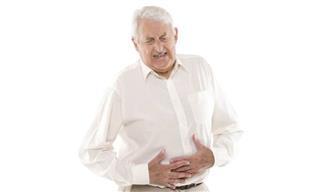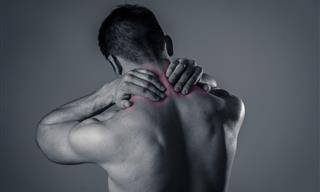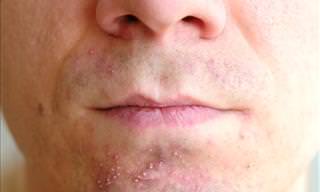What Is Oily Skin?
Before we dive into the causes of excess skin shine, we must first understand what oily skin is. In most cases, oily skin is completely normal and it is just the skin type that’s predetermined by your genetics. Anyone can have shiny skin, although men are more likely to have it than women, and with age, you may find your skin becoming less oily.
People with oily skin have more and larger sebaceous glands than other skin types, and so these glands produce a bit more natural skin oils called sebum, which appear as a shiny layer on the skin. Throughout the day or night, these oils further build upon the skin, and you may notice that the face becomes even shinier in the afternoon or when you wake up. Sebaceous glands aren’t distributed evenly throughout the skin, and there are more of them around the nose, on the forehead, and on the chin - an area also known as the T zone - which commonly becomes oily quicker.
In most cases, having a little shine by the afternoon is completely normal, in fact, it means that your sebum creates a healthy skin barrier that protects your skin from pollution and germs. However, if you notice that the sebum on your skin is gloopy or waxy, or by noon, your skin starts to shine like a disco ball, it may mean that something else is causing your skin to be oilier than it should be. Below, we list the common causes of excessively oily skin.
What Causes Excessive Shine?
Anything from the climate, to your skincare products, diet, medications, and health conditions can make your skin oilier. High humidity and hot summer weather, for example, can make us sweat more, which can make the skin appear oilier. Certain medications and health conditions may make your skin shinier, too. This is especially true when it comes to hormonal imbalances and medications that alter one's hormonal levels, as it is hormones that control sebum production. After all, hormone levels, like that of testosterone, is exactly why males and teenagers are more likely to have oily skin. So, if you have extremely oily and acne-prone skin, it wise to rule out any underlying health conditions first.
Dermatologists also point out that certain foods and drinks may be to blame for excess shine, as they can increase sebum production or make it thicker, which could cause more clogged pores and acne. For example, refined sugar, processed foods, milk, and chocolate can make your skin break out and be oilier. To learn more about the diet and acne connection, read our previous article titled 7 Kinds of Food Known to Cause Adult Acne.
Finally, our skincare routines may be to blame for excess oiliness. Washing your face more than twice a day, using facial scrubs, toners than contain alcohol, and washing your face with ordinary soap or an overly drying facial cleanser can also make your skin produce more oil. This is because your skin tries to compensate for all the drying agents you use on your skin and protect it from damage caused by scrubs. Thus, by scrubbing your face clean, you may be actually training your skin to produce more oil.
Simple and Effective Skincare Tips to Reduce Skin Shine
As we mentioned previously, people with oily skin often overdo it with scrubbing and cleansing their skin, but this doesn't mean you should stop washing your face altogether. In fact, washing your face twice a day with a neutral cleanser formulated for the face is a good way to prevent clogged pores and excessive shine. Dermatologists also recommend supplementing a daily facial wash 1-2 times a week with a special face wash that contains ingredients like salicylic acid or glycolic acid that help regulate sebum production.
Mistake number two of those with oily skin is avoiding a moisturizer. The truth is, however, that moisturizing your skin may actually help your skin produce less sebum. “If you use a moisturizer after cleansing, you can ‘trick’ the skin into believing it has the right amount of oil so it does not overproduce,” stated Dr. Alix J. Charles, a dermatologist in Hinsdale, Illinois, in a statement to Healthline.
If you can't stand the feeling of a moisturizer on your skin, opt for a gel moisturizer that will hydrate your skin without creating an occlusive layer over it. Apply the moisturizer on your cheeks and near the hairline first, and then spread out towards the nose, chin and forehead. This way, you'll have a thinner layer of moisturizer there, and the skin won't look as shiny in the T-zone.
Needless to say, it is also recommended to avoid facial scrubs, alcohol-based toners, and nose strips, as these will only irritate your skin, make your pores look larger, and urge your skin to produce even more sebum, so save your money.
If you're looking for a mask that can help manage the shininess, wash-off clay masks are generally effective at blotting the oils from the skin and can be safely used 1-2 times a week. To manage the excess shine during the day, blotting papers are the most effective, but a paper tissue will do the trick just as well.
Please share this article with those who might find it useful!
 Go to BabaMail
Go to BabaMail



























































